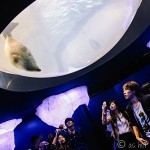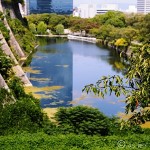Yesterday I wrote about the captivating creatures at the Osaka Aquarium in Japan. But I’ve saved the best for last — today I’ll share photos from the main tank which features TWO whale sharks and dozens of other species, plus images of the jellyfish exhibit.
The acrylic glass around the giant aquarium is one foot thick.
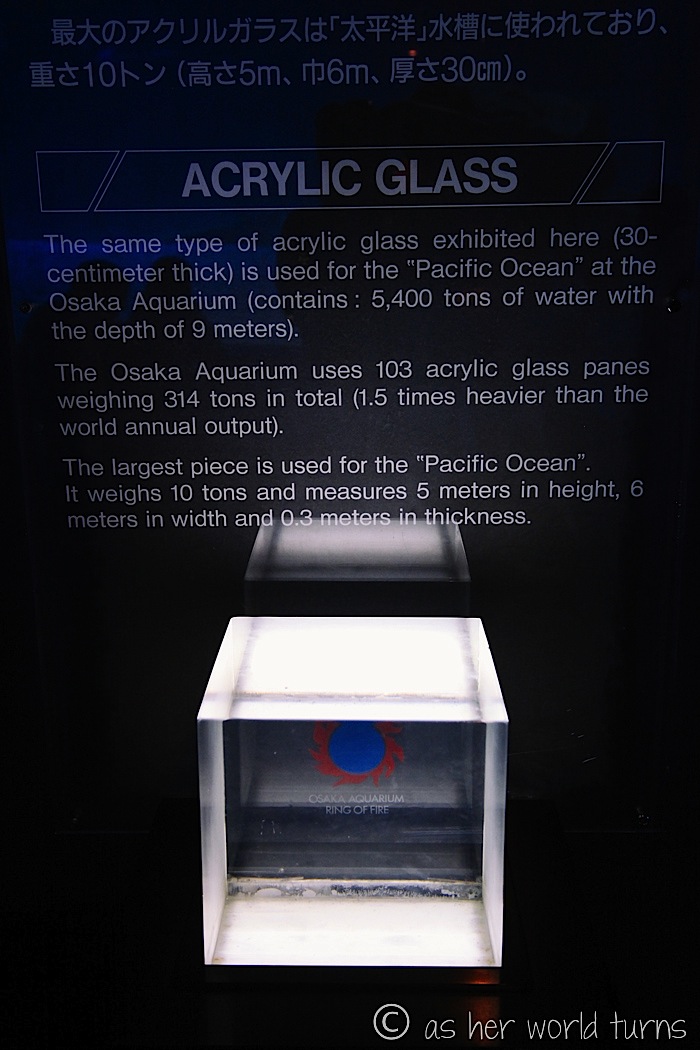
There are dozens of sharks — including hammerheads — as well as sting rays, manta rays, and an assortment of large fish. It’s a veritable aquatic menagerie:
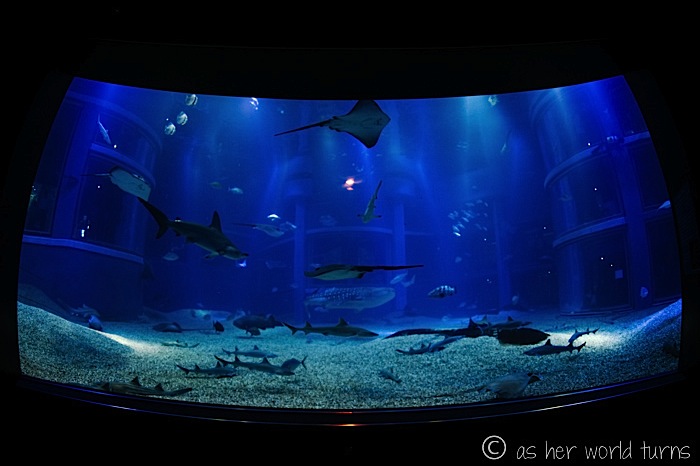
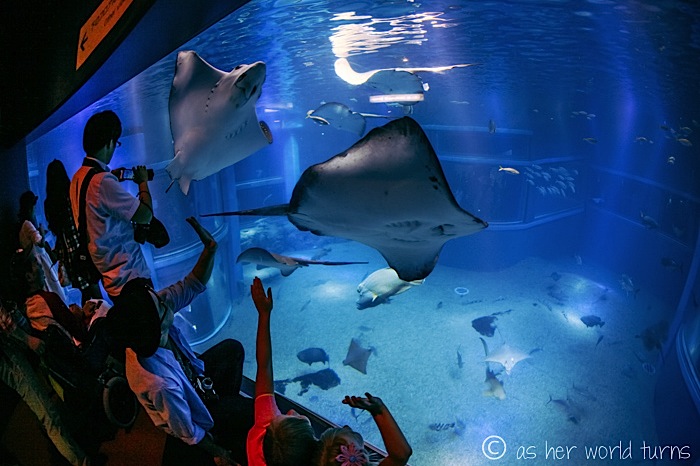
I LOVE sting rays. The edges of their mouths seem to curve upward into a smile, like they just want to say hello and play.
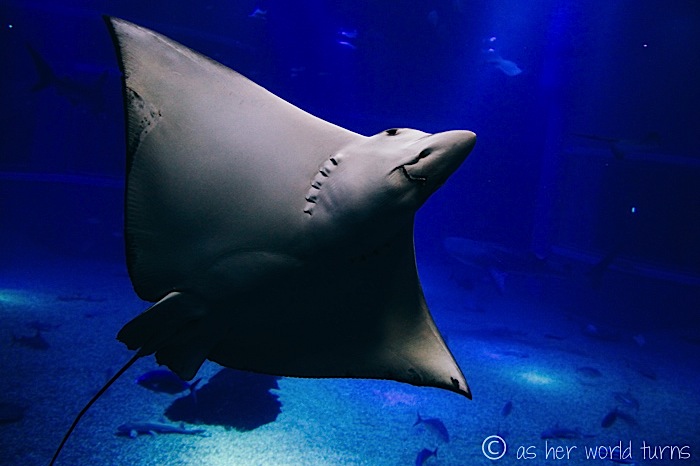
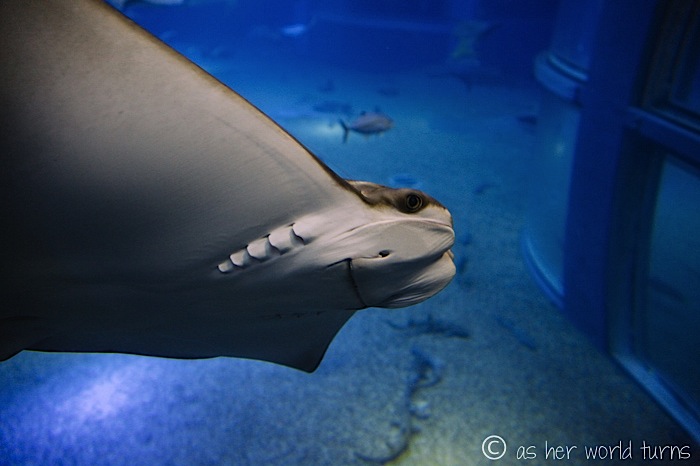
Every time I look at this guy, I think he’s shrugging his shoulders and it makes me laugh.
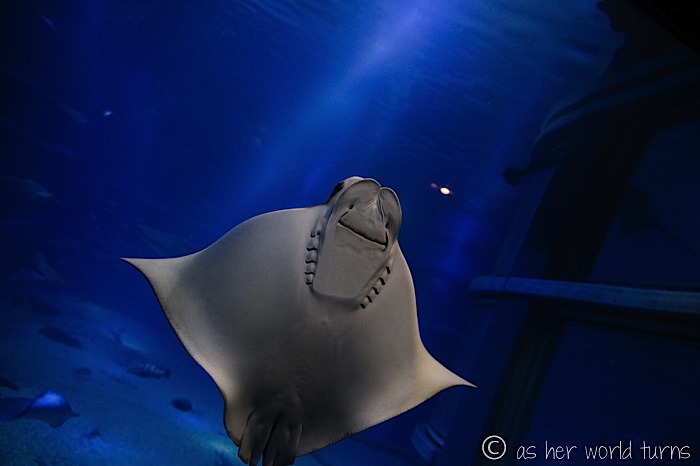
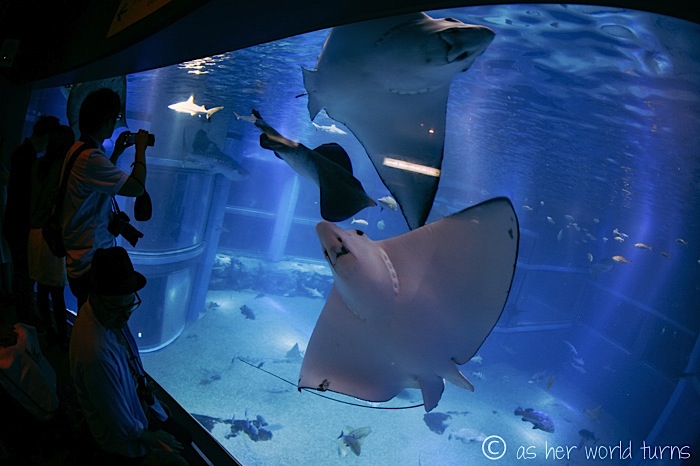

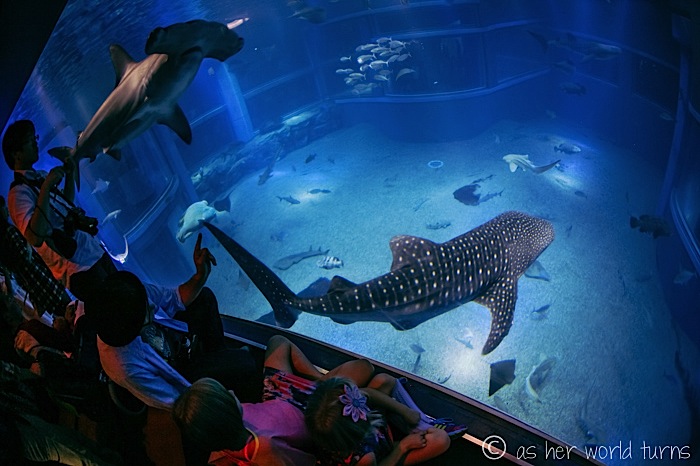
I’m captivated by the giant whale shark above (and that’s a hammerhead shark on the upper left corner). It’s a dream of mine to someday swim (or more likely scuba dive) alongside them in the ocean, but for now I’ll settle for gazing longingly through twelve inches of acrylic glass.
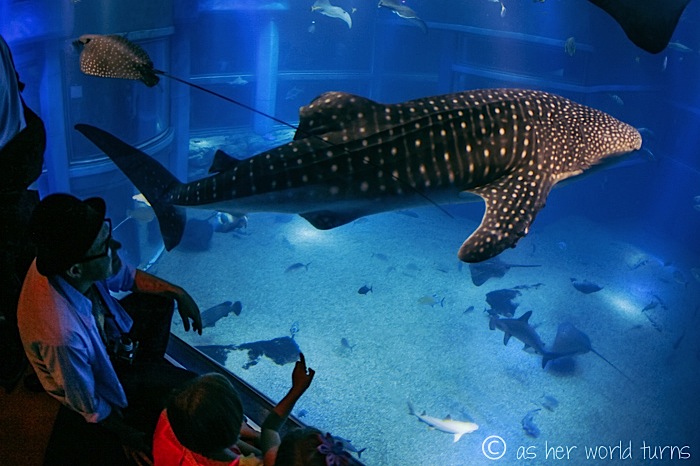
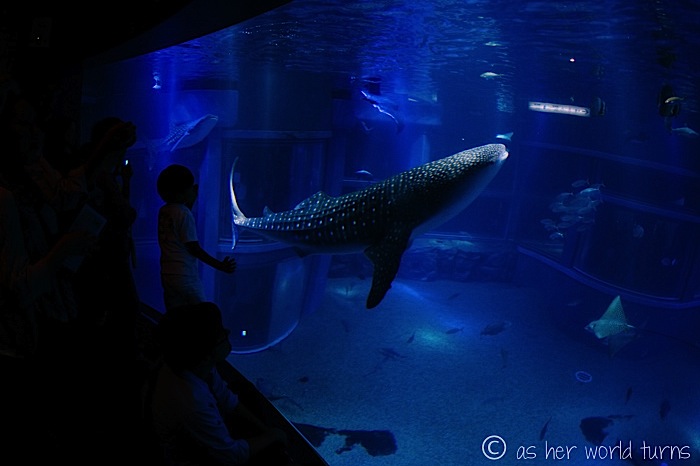
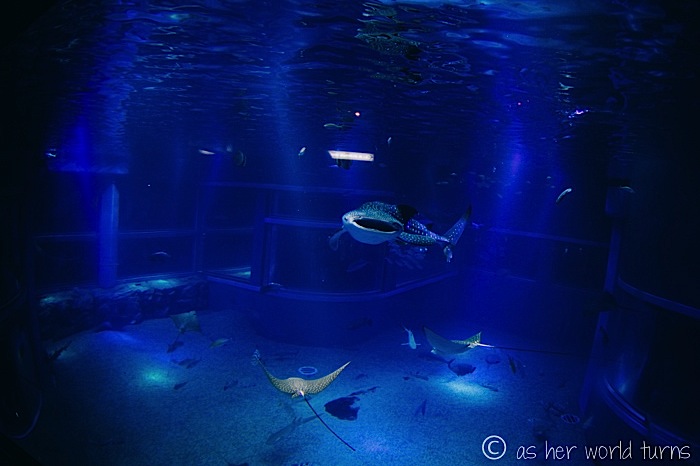
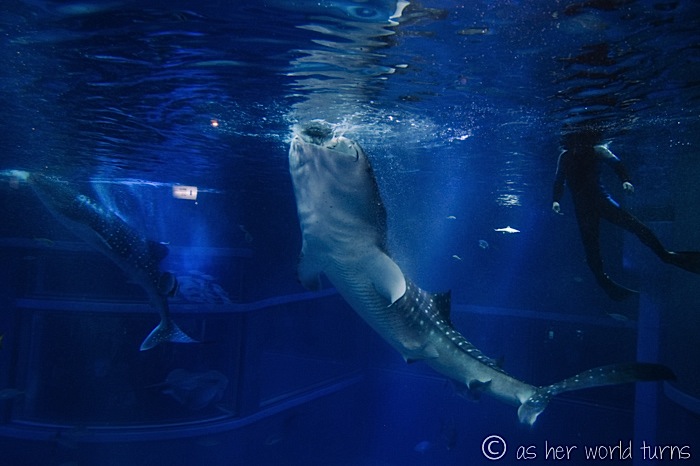
I stick around long enough for feeding time to commence. The trainer dumps a bucket of small fish into the gaping mouth of the whale shark.
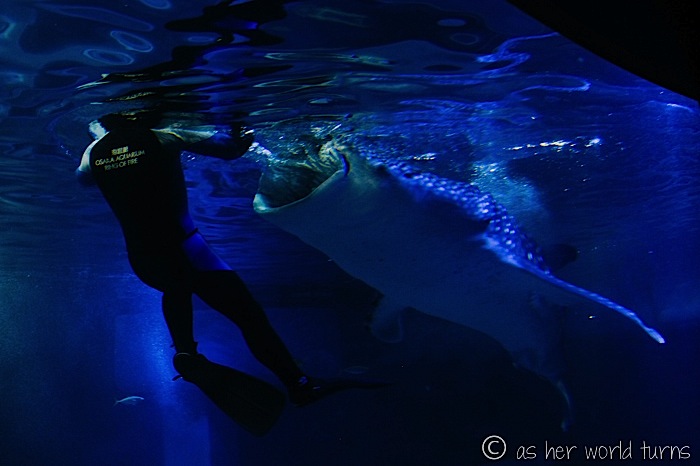
In the photos above you can only see one of the whale sharks, but in these next few you can see them both. Even though this water tank is HUGE, it still seems like not enough space for these two enormous creatures.

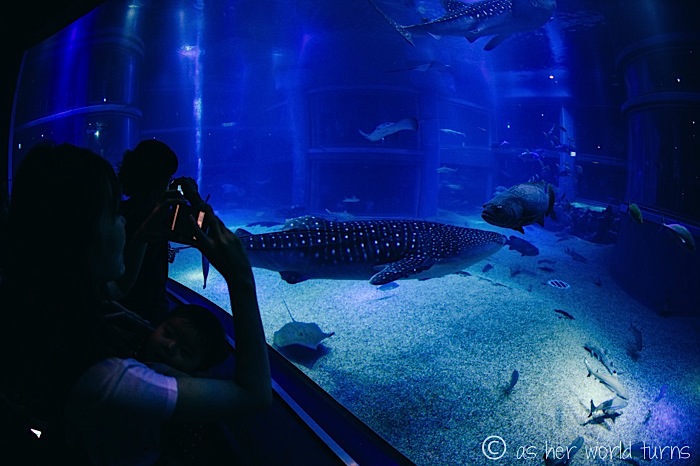
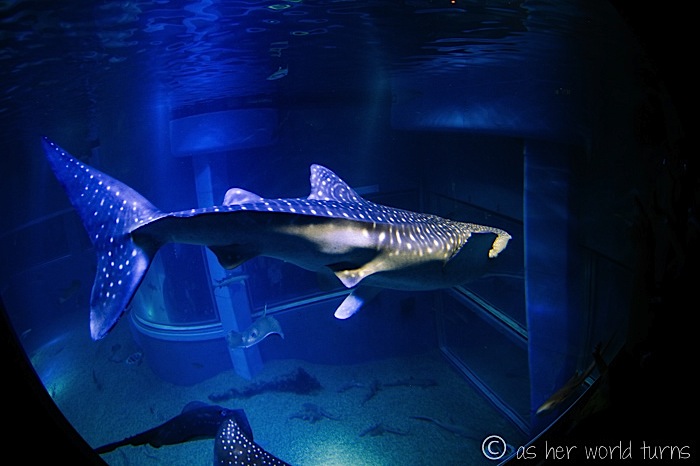
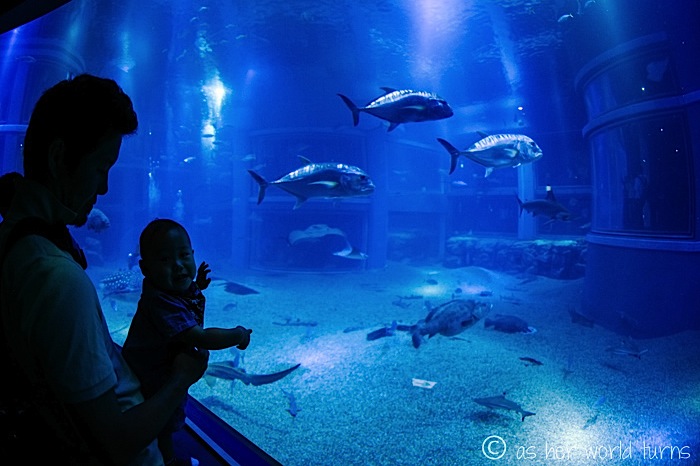
These sharks appear to be dozing in a corner of the aquarium:
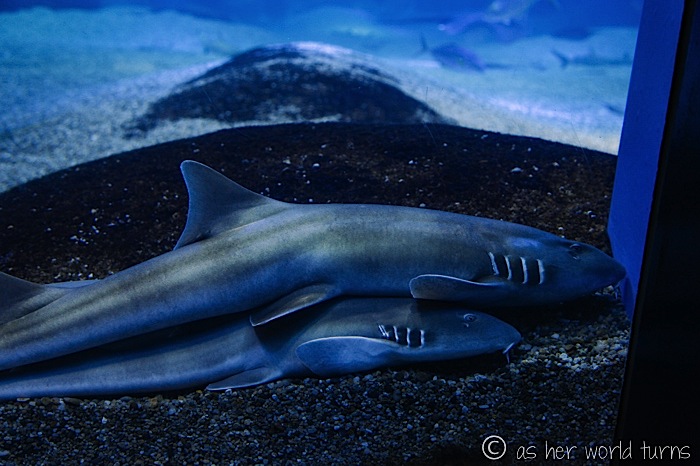
Next I head to the jellyfish exhibit. If I’m being honest, this is the number one reason I’ve come to the Osaka aquarium. After snorkeling in Jellyfish Lake, I’m eager to see more varieties up close.

These are moon jellyfish:
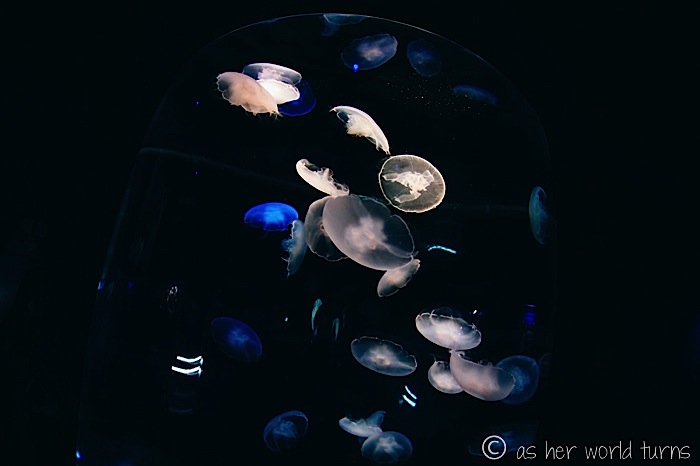
And I think this is a type of Cassiopea jellyfish, but I can’t recall for sure. Usually I’m better about photographing the species name in a zoo / aquarium setting.
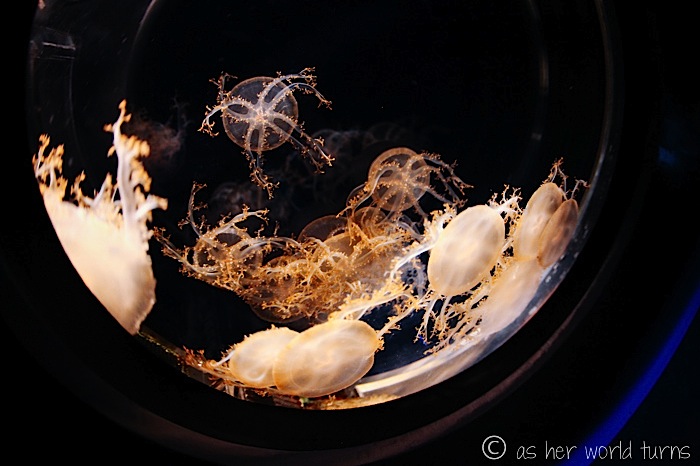
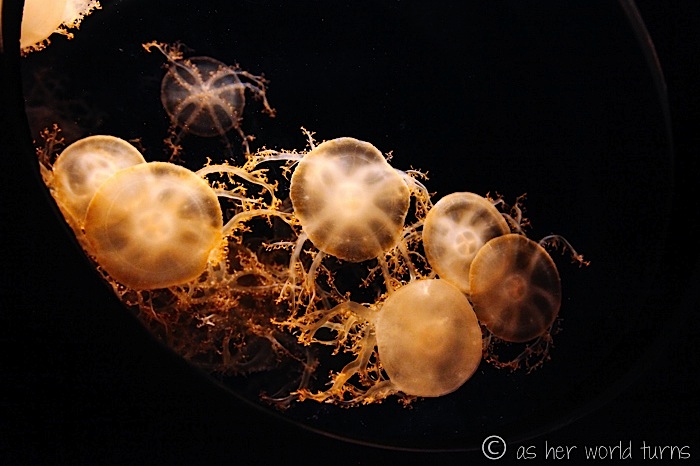
These Atlantic sea nettle jellyfish. I can’t take my eyes off their wispy, trailing tentacles and pulsating bells.
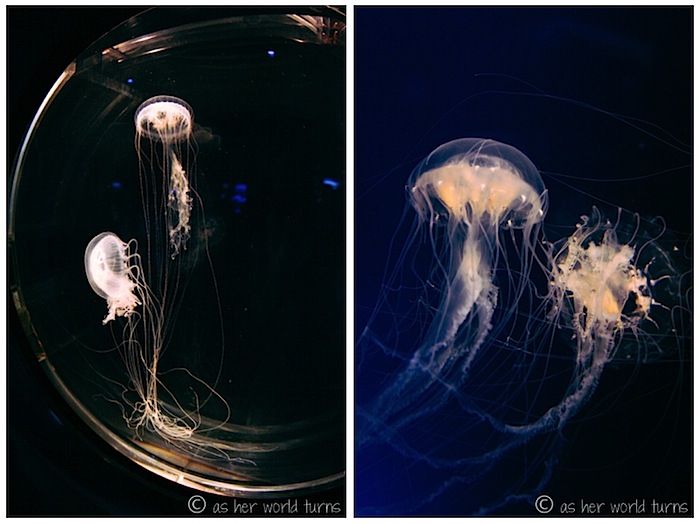

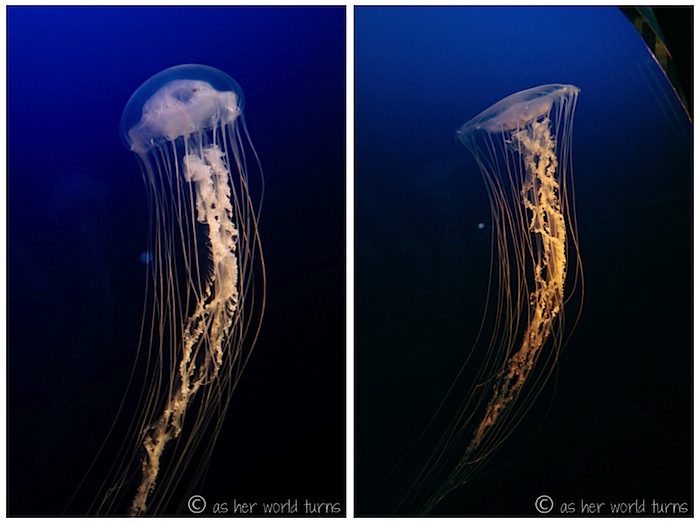
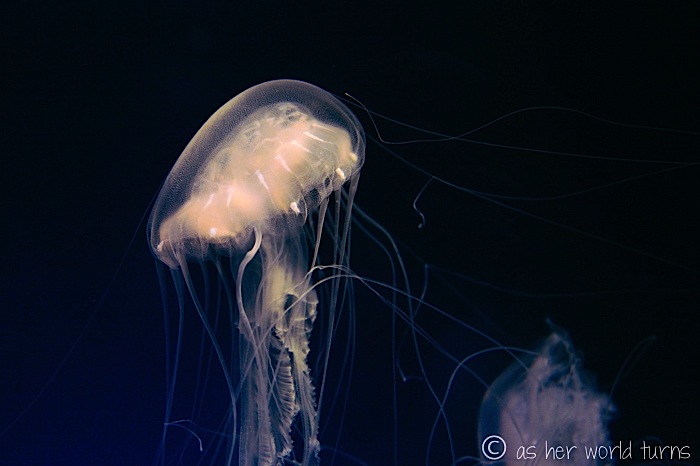
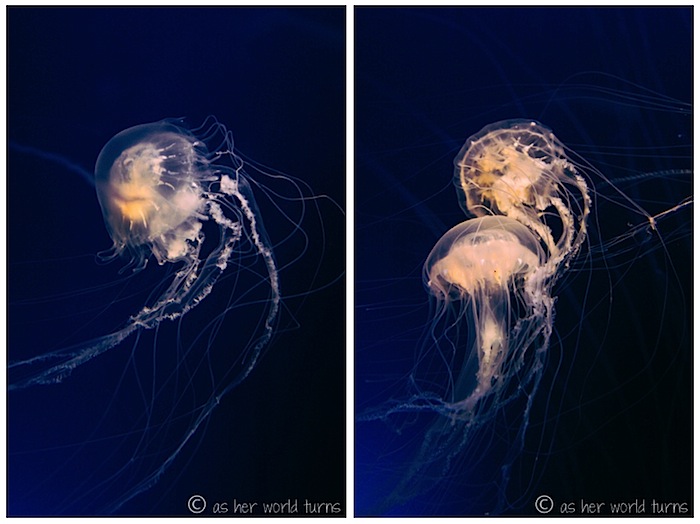
These are flower hat jellyfish. That’s their actual name.
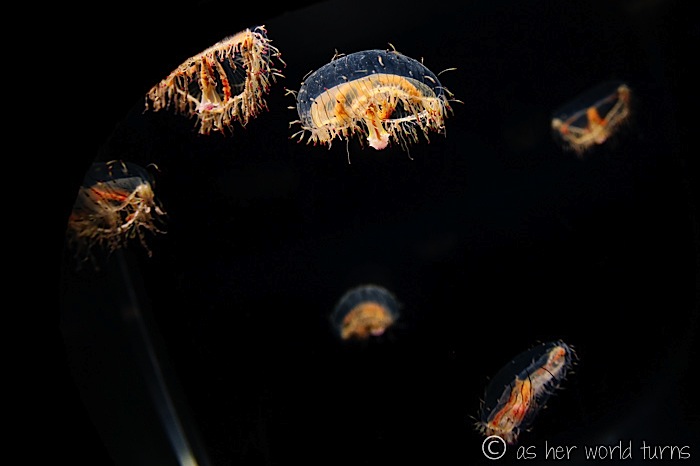
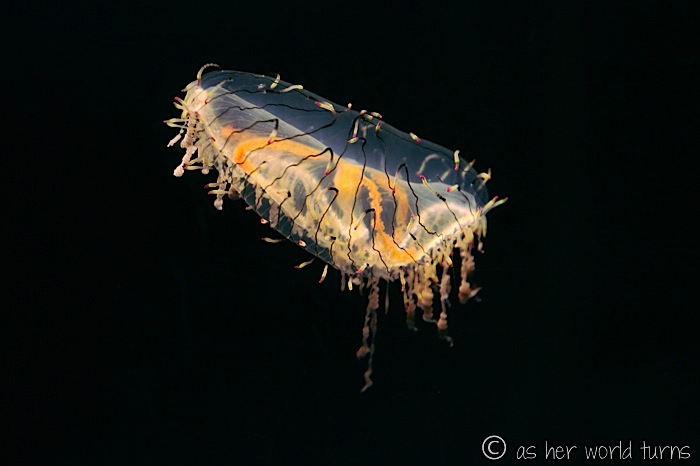
These bright red Northern sea nettle jellyfish are my favorite to watch.
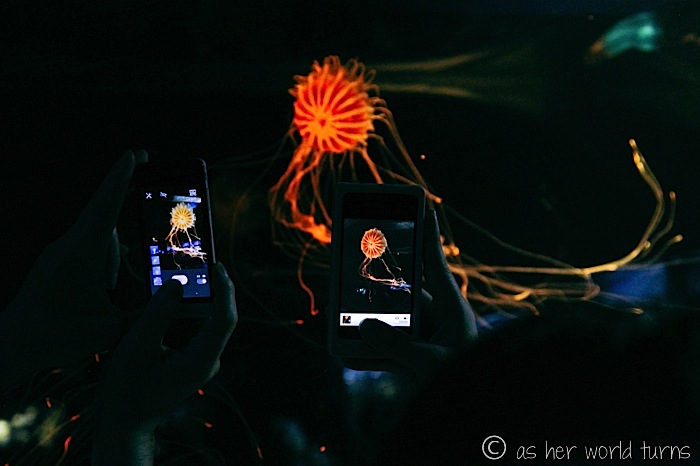
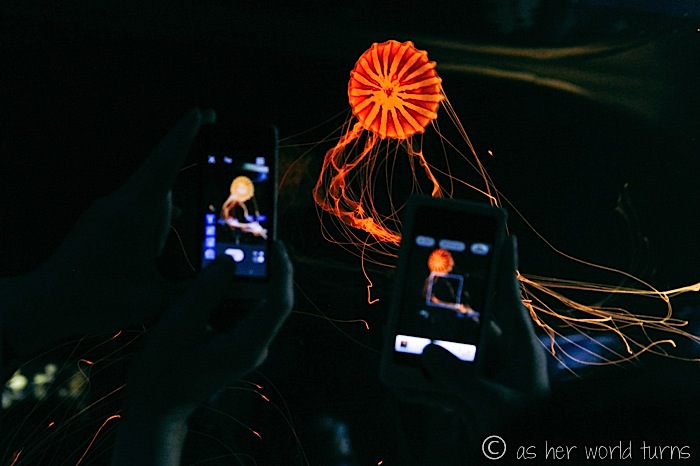

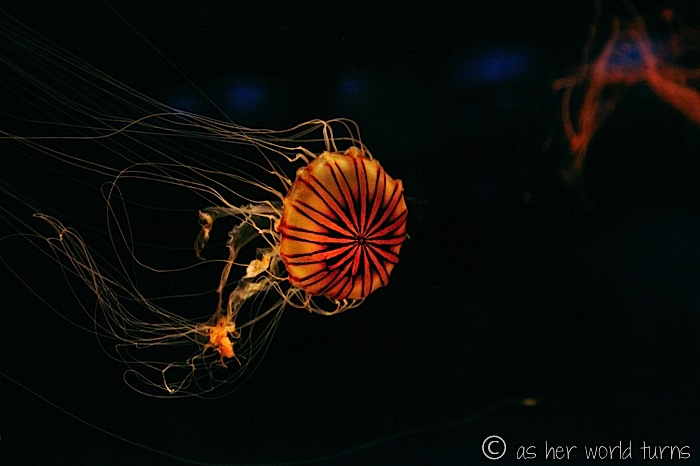
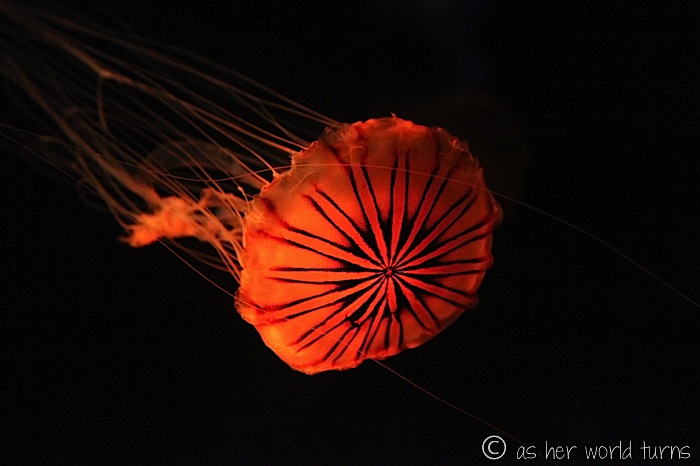
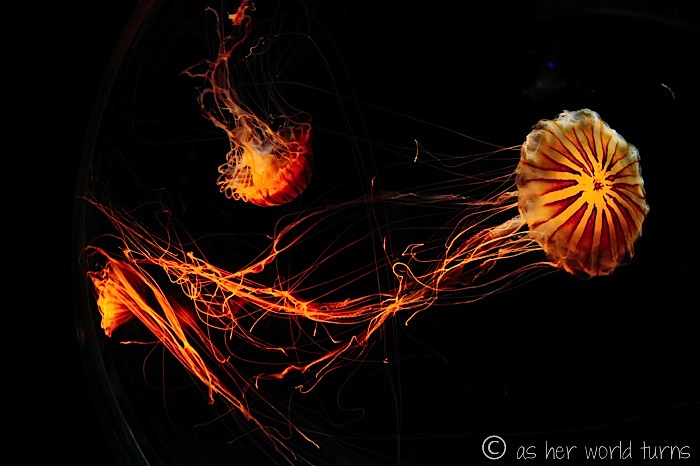
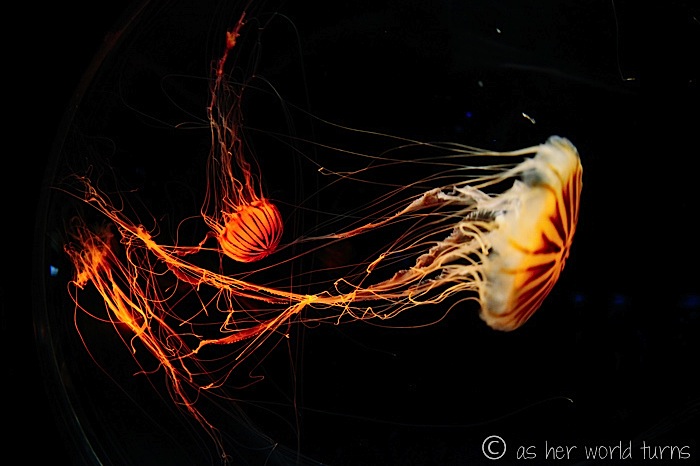
Here’s the underside of that same jellyfish:
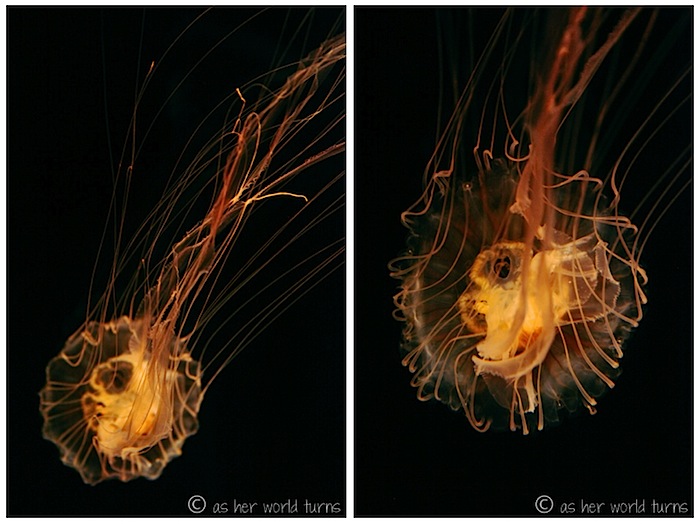
The Jelly Blubbers are short and stout, with intense blues and reds.
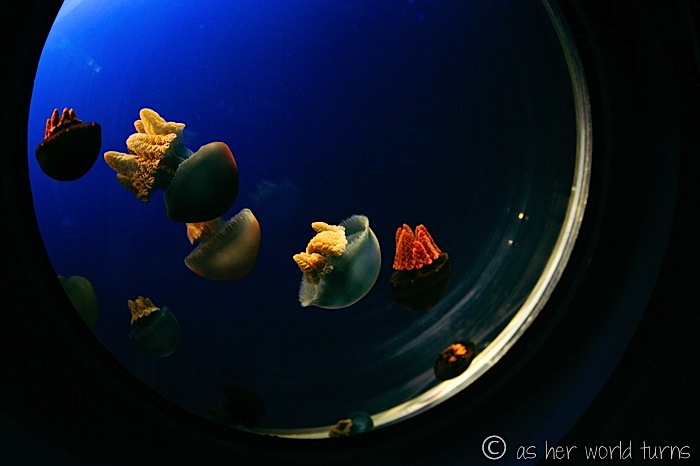
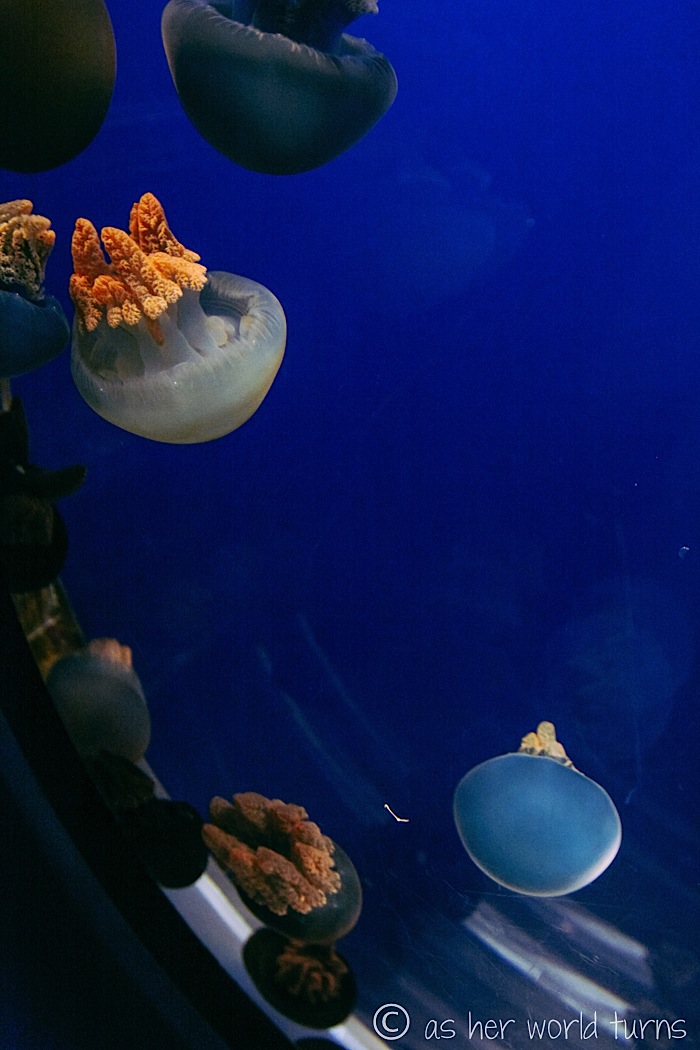
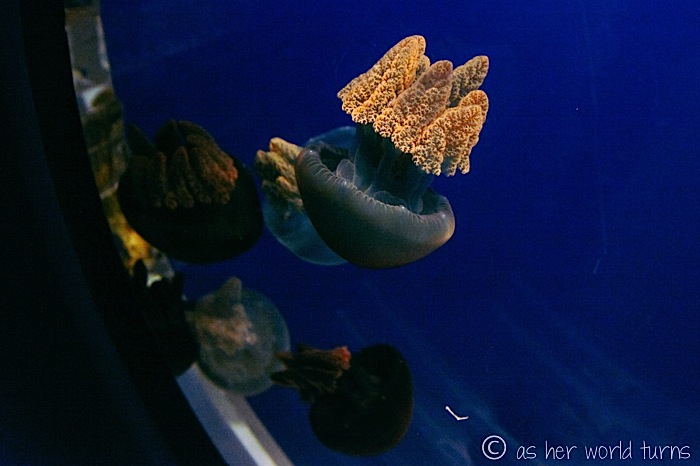
I think these are turritopsis nutricula (say that three times fast), also known as the immortal jellyfish because they are able to transform cells from a mature state back to immaturity. It’s called transdifferentiation and it essentially means they’ll never die; they are biologically immortal. My mind is blown.
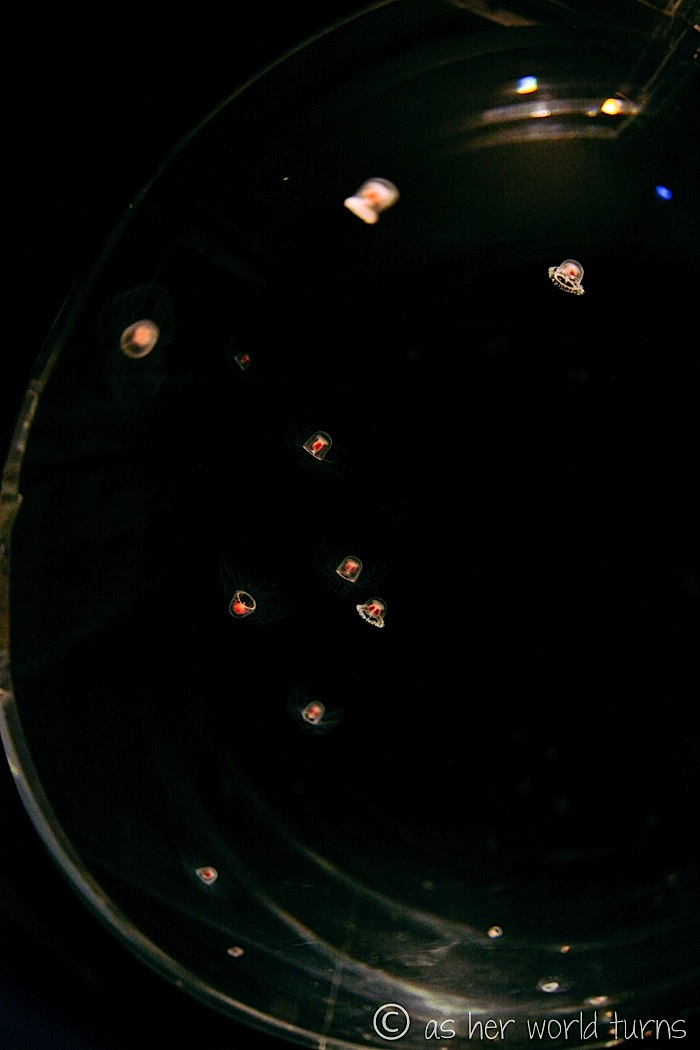
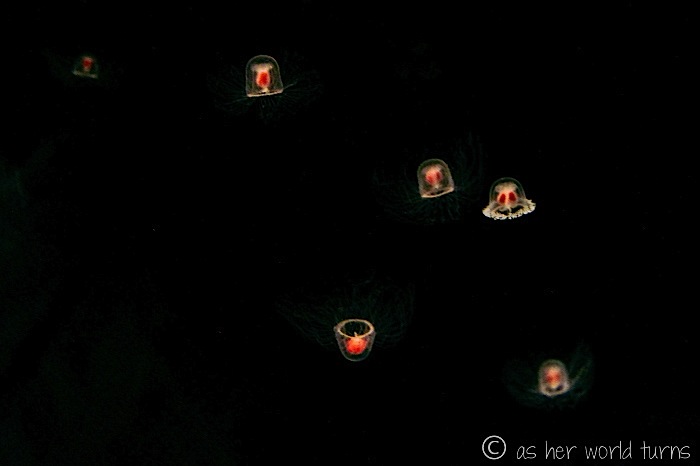
These white spotted jellyfish are pretty to photograph:
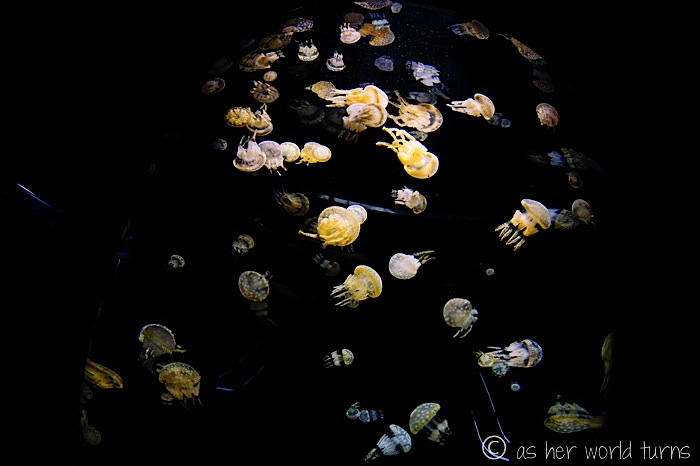
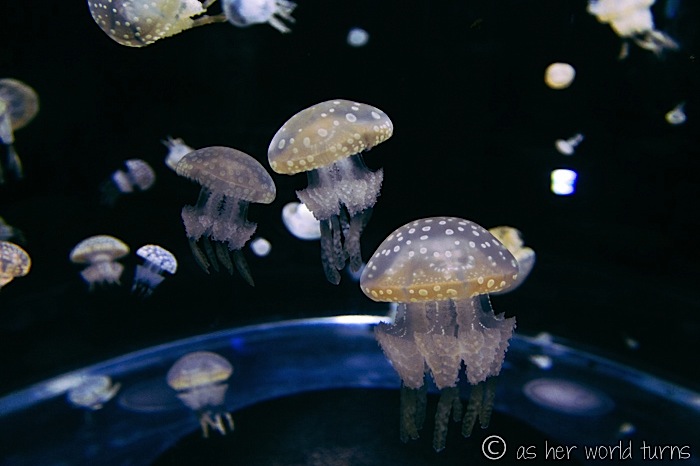
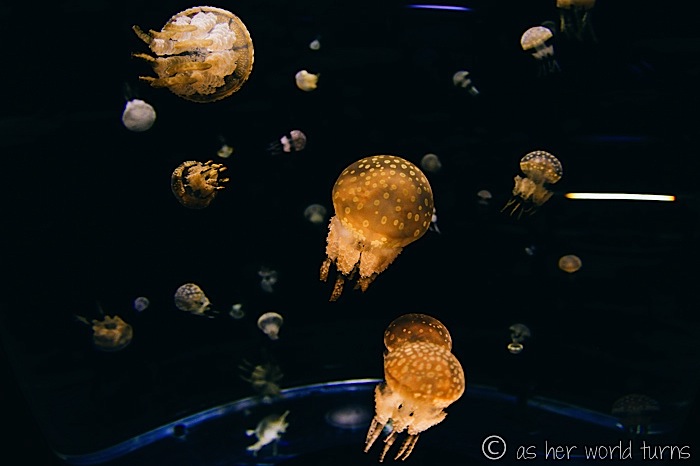
And that wraps up my six-hour visit to the Osaka Aquarium. Many thanks to my new friends Asadeh and Nino for telling me how cool this place is — I wouldn’t have known about it without their recommendation!

